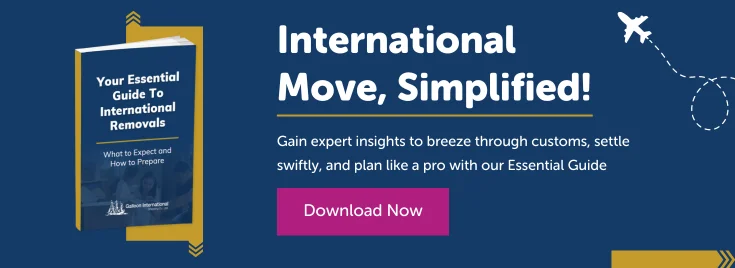
Bridging the Distance: 5 Ways to Ensure Inclusivity for Overseas Relocated Employees
With many businesses extending their reach into overseas markets, relocating employees overseas is becoming increasingly common. However, leaving the UK to live and work abroad – or bringing employees from overseas - creates its own challenges for staff and their families, so ensuring they feel included and valued in their new roles and homes is a priority that organisations must address.
Our free guide, ‘Relocating In A Recession: Steps To Consider For A Smooth Transition’, offers practical tips about the things your business needs to consider when moving its team abroad, but in this article, we’ll outline five effective ways you can enhance inclusivity for employees once they have arrived in their new destination.
1. Customise Onboarding
Tailoring the onboarding process for overseas relocated employees is essential to ensure their individual needs are met, such as visa requirements, cultural adaptation, and compliance with local regulations. A customised onboarding program helps to smooth the transition for employees, eliminating many of the stressful aspects of relocation and helping them to feel supported and valued from day one. It's important that this process covers not just the professional aspects of their move but also the personal ones, such as understanding local laws and customs and finding their way around a new city.
2. Develop Cross-Cultural Sensitivity
Offering cultural sensitivity training to both the relocated employees and their new teams is vital to fostering an inclusive environment. Training should focus on creating an awareness and appreciation of diverse perspectives and practices to minimise misunderstandings and build a more cohesive, empathetic workplace culture. Understanding and respecting cultural differences is key to creating a harmonious and productive working environment.
3. Enhance Communication
Establishing transparent and regular communication channels is crucial to bridge geographical gaps and ease employees into their new roles abroad. Technology should be utilised for video conferences and virtual team meetings, thereby keeping lines of contact open. Ongoing communication is vital, not just for work-related collaboration, but also to build personal connections and foster a sense of belonging among team members, regardless of their physical location. Employees who are more engaged consistently produce more impactful work
4. Build Global Team cohesion
Promoting cross-border team-building activities is another effective strategy to boost inclusivity for your overseas staff. Initiatives such as virtual team challenges, online games, or collaborative projects can nurture unity and collaboration among employees. These activities can be enjoyable and engaging ways to erode barriers and build strong relationships across the team, particularly for staff who have recently relocated to new countries.
5. Provide Mentorship and Support
Pairing relocated employees with mentors or buddies can significantly ease their adjustment to the new workplace environment and region. These mentors can provide guidance, answer questions, and offer support during their transition, both professionally and personally – their advice doesn’t have to be restricted to the workplace, as staff who are comfortable at home are more likely to be more productive. A support network can be invaluable in helping employees navigate the early stages of their relocation, ensuring they don't feel isolated or overwhelmed.
Contact Us for Expert Overseas Location Advice
For advice about how we can help with relocating your employees overseas, please contact Galleon International today.

Image Source: Canva

